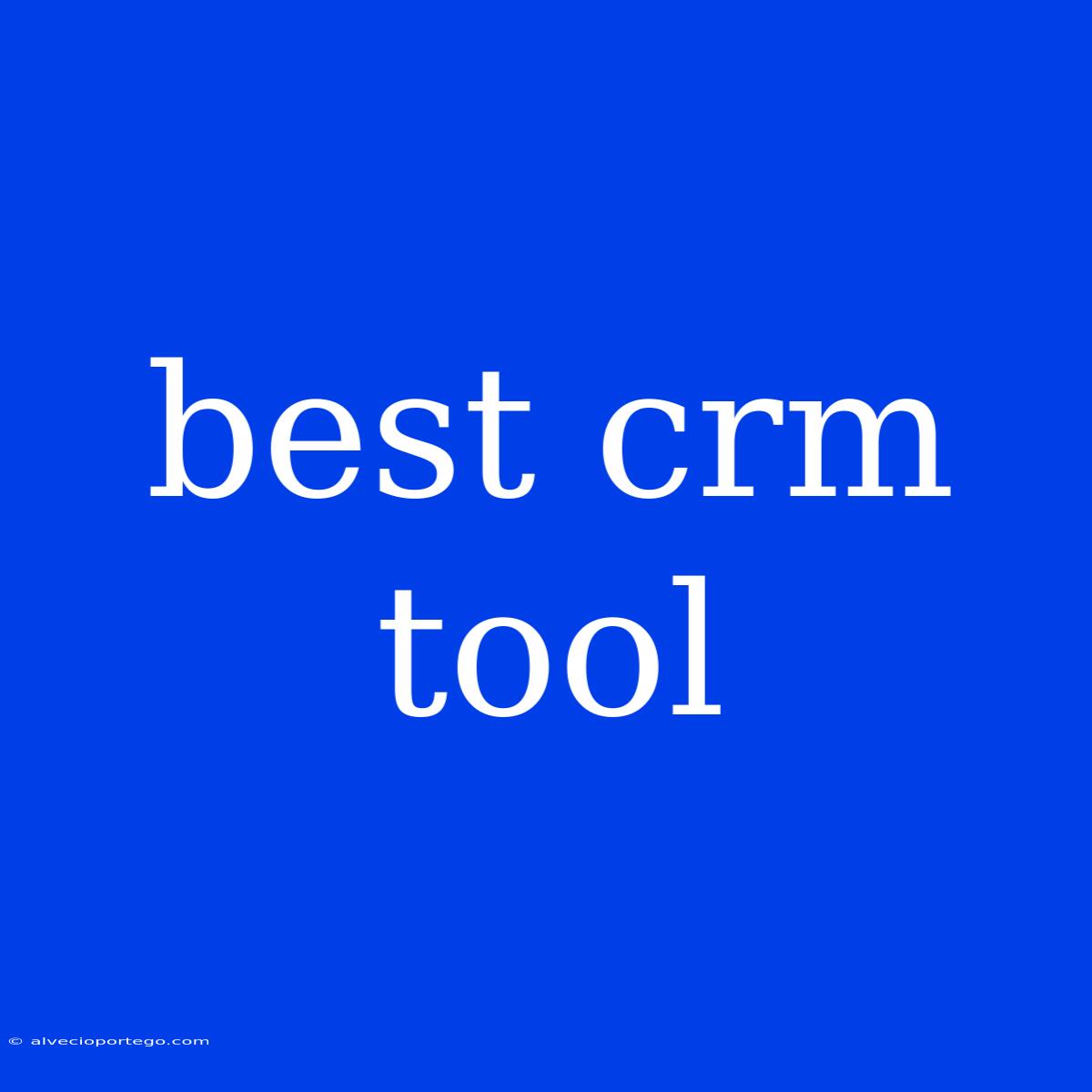Finding the Best CRM Tool for Your Business: A Comprehensive Guide
Choosing the right CRM tool is crucial for any business, as it can streamline operations, improve customer relationships, and boost sales. But with so many options available, it can be overwhelming to decide which one is the best fit for your specific needs.
This comprehensive guide will help you navigate the CRM landscape, providing insights into essential features, key considerations, and popular options to help you find the perfect tool to elevate your business.
What is a CRM Tool?
CRM stands for Customer Relationship Management. A CRM tool is a software solution that helps businesses manage and organize their interactions with current and potential customers. It centralizes customer data, tracks communication, automates processes, and provides valuable insights to enhance customer service, sales, and marketing efforts.
Key Features to Look for in a CRM Tool:
1. Contact Management:
- Comprehensive Contact Database: Stores customer information like contact details, demographics, purchase history, and communication logs.
- Lead Management: Tracks potential customers, scores them based on their likelihood to convert, and automates follow-up actions.
- Segmentation and Targeting: Groups customers based on shared characteristics to personalize communication and marketing campaigns.
2. Sales Automation:
- Pipeline Management: Visualizes sales opportunities, monitors progress, and identifies bottlenecks to optimize the sales process.
- Lead Scoring: Prioritizes leads based on their potential value and assigns them to appropriate sales representatives.
- Opportunity Management: Tracks deals, manages quotes, and facilitates negotiation and closing processes.
- Email Marketing Integration: Sends targeted email campaigns to nurture leads, promote products, and build relationships.
3. Customer Support:
- Ticketing System: Tracks and manages customer inquiries, issues, and requests.
- Live Chat: Provides real-time support for immediate customer queries.
- Knowledge Base: Stores helpful articles, FAQs, and resources to empower customers and reduce support workload.
- Customer Feedback Collection: Collects feedback through surveys, polls, and reviews to improve customer experience.
4. Marketing Automation:
- Campaign Management: Creates and executes marketing campaigns across multiple channels, including email, social media, and SMS.
- Automation Rules: Sets up automatic actions based on customer behavior, such as sending personalized emails, scheduling social media posts, and triggering promotional offers.
- Reporting and Analytics: Tracks campaign performance, identifies key metrics, and optimizes marketing strategies based on data insights.
5. Reporting and Analytics:
- Dashboards: Provides real-time insights into key performance indicators (KPIs) to track progress and identify areas for improvement.
- Customizable Reports: Generates tailored reports based on specific needs, such as sales performance, customer engagement, and campaign effectiveness.
- Data Visualization: Presents complex data in easy-to-understand charts and graphs for better decision-making.
Key Considerations for Choosing a CRM Tool:
1. Business Size and Needs:
- Small Businesses: Look for affordable, user-friendly tools with basic features like contact management, email marketing, and basic reporting.
- Large Enterprises: Consider enterprise-grade CRM solutions with advanced features, robust security measures, and integration capabilities.
2. Budget:
- Free and Open-Source Options: Offer basic functionality but may have limited features and customization options.
- Paid Solutions: Range in pricing based on features, user licenses, and support options.
3. Industry:
- Specific Industries: Opt for CRM tools designed for particular industries, such as healthcare, retail, or finance, that offer tailored features and functionalities.
4. Integration Capabilities:
- Existing Systems: Ensure the CRM integrates seamlessly with your existing systems like accounting software, email marketing platforms, and social media tools.
5. User-Friendliness and Training:
- Ease of Use: Choose a CRM with an intuitive interface that's easy for your team to learn and adopt.
- Training and Support: Consider tools that offer comprehensive training resources and responsive customer support.
Popular CRM Tool Options:
- Salesforce: Industry-leading CRM with a wide range of features, customizable solutions, and extensive integration capabilities.
- HubSpot: Comprehensive platform with a focus on inbound marketing and sales automation, offering free and paid plans.
- Zoho CRM: Affordable and user-friendly CRM with a wide range of features, including project management, inventory management, and more.
- Microsoft Dynamics 365: Enterprise-grade CRM with powerful capabilities for large businesses, including advanced analytics and integration with Microsoft Office 365.
- Pipedrive: Focuses on sales pipeline management and visualization, making it a popular choice for sales teams.
Conclusion:
Choosing the best CRM tool for your business is a significant decision that can impact your success in the long run. By considering your specific needs, budget, industry, and integration requirements, you can select the right tool to streamline your operations, enhance customer relationships, and drive business growth. Remember to evaluate the features, pricing, user experience, and support offered by different CRM solutions before making a final decision.

